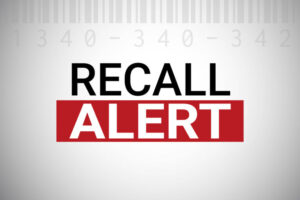Purchasing your own truck and becoming an owner-operator is a big step in a trucking career. Many drivers take that step and then choose to lease that truck to an established carrier. Doing this allows them to make decisions about their business while maintaining the security of the carrier’s freight system.
There’s another step, however, that means true trucking independence. Obtaining your own authority can establish your identity as a stand-alone carrier … but it can also add tons of responsibility, as the role of truck owner/driver expands to company manager.
While the concept of “authority” may seem complicated, it really isn’t. At its simplest, the term simply means “permission.” If you meet the requirements, the government can register your business as an official carrier, providing the permission you need to operate. If you stop meeting those requirements, your authority can be revoked.
The official term for that authority is MC (or motor carrier) authority. When it is granted, you’ll receive an MC number that must be displayed on your vehicle. You’ll also need a Department of Transportation (DOT) number — and it can be confusing to know the difference between those two numbers.
DOT numbers typically refer to vehicle and cargo types. For example, you might specify you’ll be driving a vehicle in excess of 10,000 pounds and hauling hazardous materials. If you intend to haul farm products or products from your own business, you’ll need a DOT number, but you may not need an MC number.
MC numbers are how the Federal Motor Carrier Safety Administration (FMCSA) identifies the interstate operating authority of your business. You must have a DOT number to receive an MC number. Most states require a DOT number even if all your travel is within that state.
You can register your business with FMCSA at fmcsa.dot.gov/registration/get-mc-number-authority-operate. DOT numbers cost nothing, while the fee for MC registration is $300 for each type of authority sought. For example, if your business hauls freight but you also own a couple of passenger-hauling buses, you’ll need separate authority for each.
It can take a month or more for your authority to be issued. You must have liability insurance in effect for your authority to be granted, and that authority will be revoked if you allow your insurance to lapse or it is cancelled.
Once you’ve obtained your authority, you’ll be responsible for meeting the legal obligations that go along with your business. If you’re an owner-operator leased to a carrier, the carrier may handle vehicle registration, International Fuel Tax Association (IFTA), heavy-vehicle use tax (HVUT) and all permits on your behalf. When you have your own authority, all of these — and more — become your responsibility.
Some owners choose to use business services to handle the legal stuff. There are a number of businesses that offer to handle these tasks for you. Services can vary, and so can the fees charged for the tasks. Be sure to choose a firm you trust. After all, your business is at stake.
The legal requirements are only the first step. As an independent carrier, you’ll be responsible for all the different facets of your business. Think about the structure of a large carrier. Typically, you’ll find an operations department that handles the daily task of moving freight. You’ll also find a sales department that sells the service, and a customer service department that is the liaison between operations and the customer. There is also a department responsible for billing and collecting payment for services provided, as well as paying the bills and handling tax matters. A safety department ensures compliance with applicable laws, and a permits person or department makes sure each truck has all the necessary documents. A maintenance department is responsible for equipment purchase and upkeep.
When you own the company, all of those responsibilities are now yours. The job of picking up, hauling and delivering freight is only part of what you’ll be responsible for.
As with the legal matters, of these duties can be handled by other businesses, but keep in mind that fees for these services will come out of your profits. There are several ways to handle vehicle maintenance, for example. You might pay a repair business to take care of everything from routine oil changes to major repairs. You might choose to do the less complicated tasks, like changing oil or tires and fixing lights yourself, leaving the bigger jobs to a shop. Some truck owners are very knowledgeable and do most of their own repair work. Decide how you’ll handle these things in your business.
If you do your own maintenance work, there’s a catch: When your truck is in the shop, no matter who is performing the work, no freight is hauled and no income received. So, even if you’re capable of doing the work, a shop might do it faster, getting you back on the road and bringing in profits.
The same principles apply to other parts of your business. For example, will you personally call on potential customers and sell your services? You may choose to work with brokers instead, understanding that they keep a percentage of the load revenue for their services.
Other functions, such as accounting, take time and expertise, and you might be better off trusting them to a business that handles them. You might even hire someone to do the driving for you, while you take care of the other functions or simply make sure that the businesses you have contracted with are doing their part.
Operating a successful business often starts with a skills inventory. You may be a great driver … but how are your management skills? Your math and accounting? Are you a good salesperson? You might choose to do the things you’re good at and hire someone else for the rest. Time is another factor. Time spent on accounting tasks can’t be spent driving. What’s the best use of your time?
Obtaining your own authority can be a huge step towards building your trucking empire, but it’s important to plan how you’ll handle the different facets of the job.
Cliff Abbott is an experienced commercial vehicle driver and owner-operator who still holds a CDL in his home state of Alabama. In nearly 40 years in trucking, he’s been an instructor and trainer and has managed safety and recruiting operations for several carriers. Having never lost his love of the road, Cliff has written a book and hundreds of songs and has been writing for The Trucker for more than a decade.














